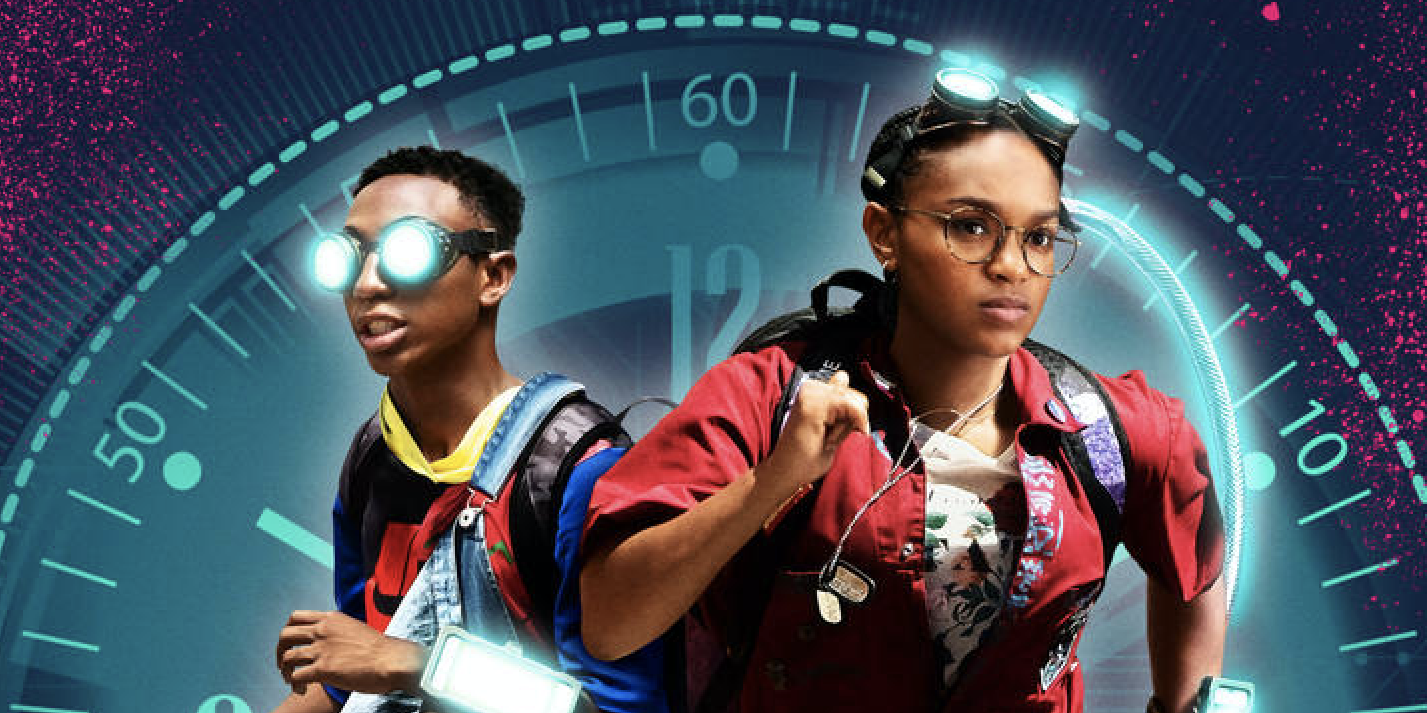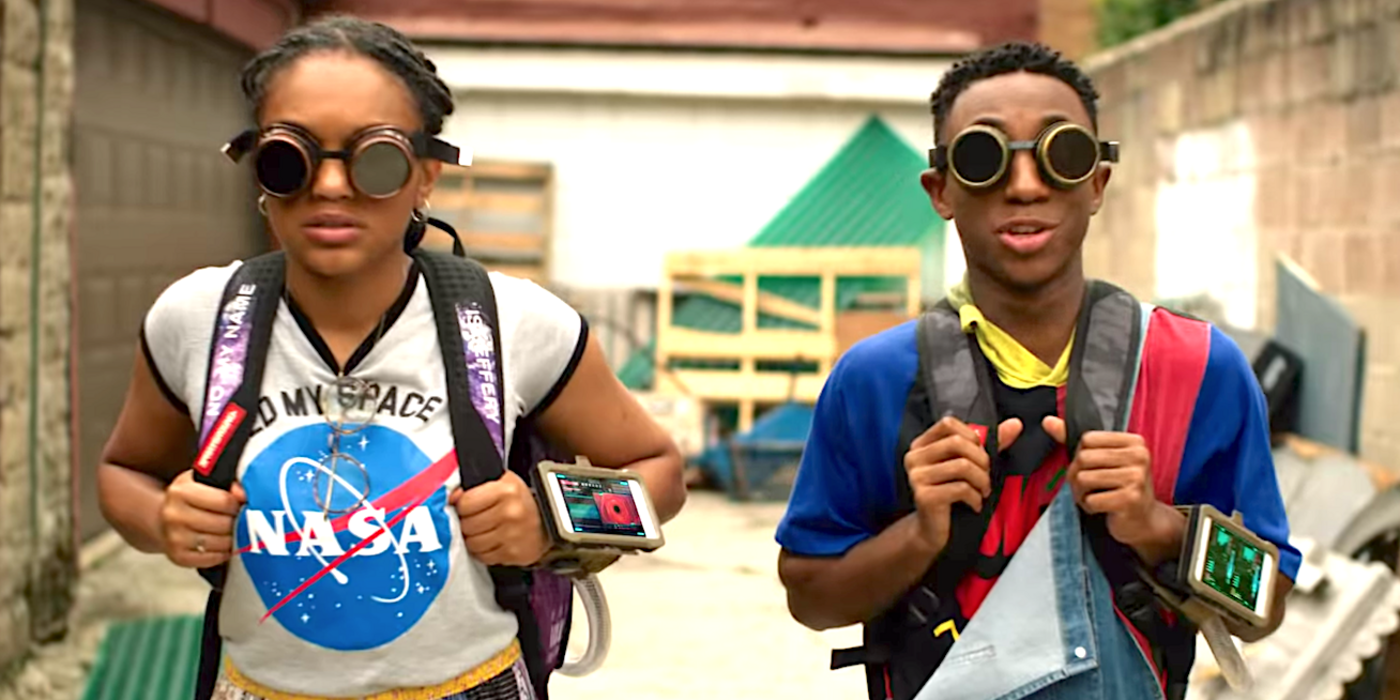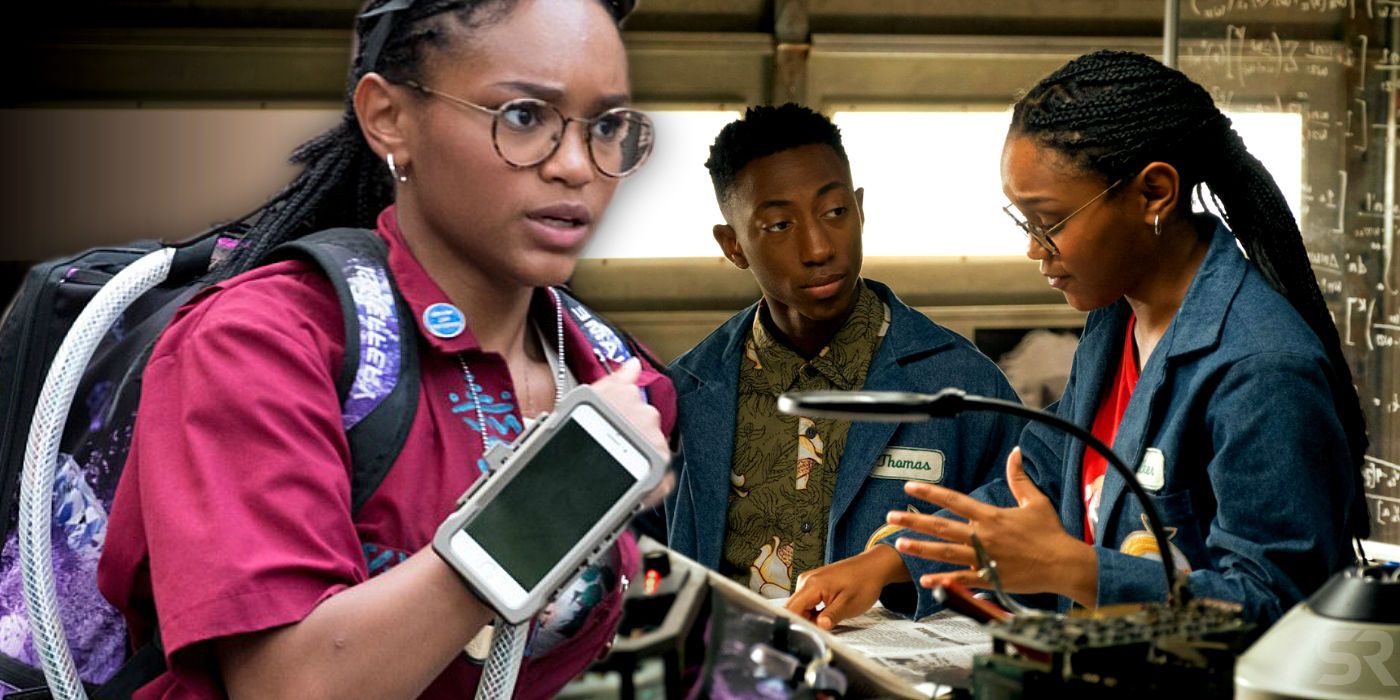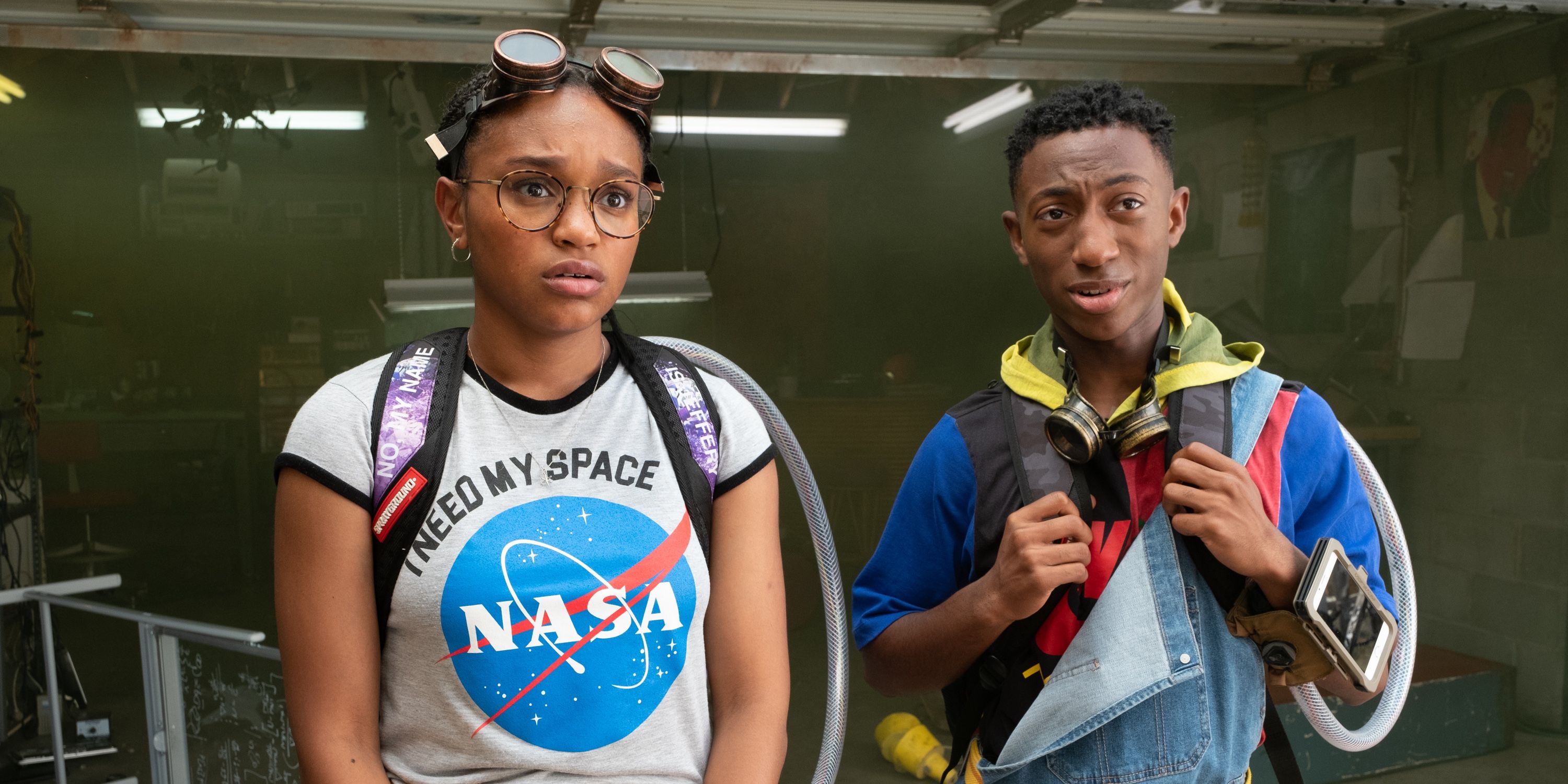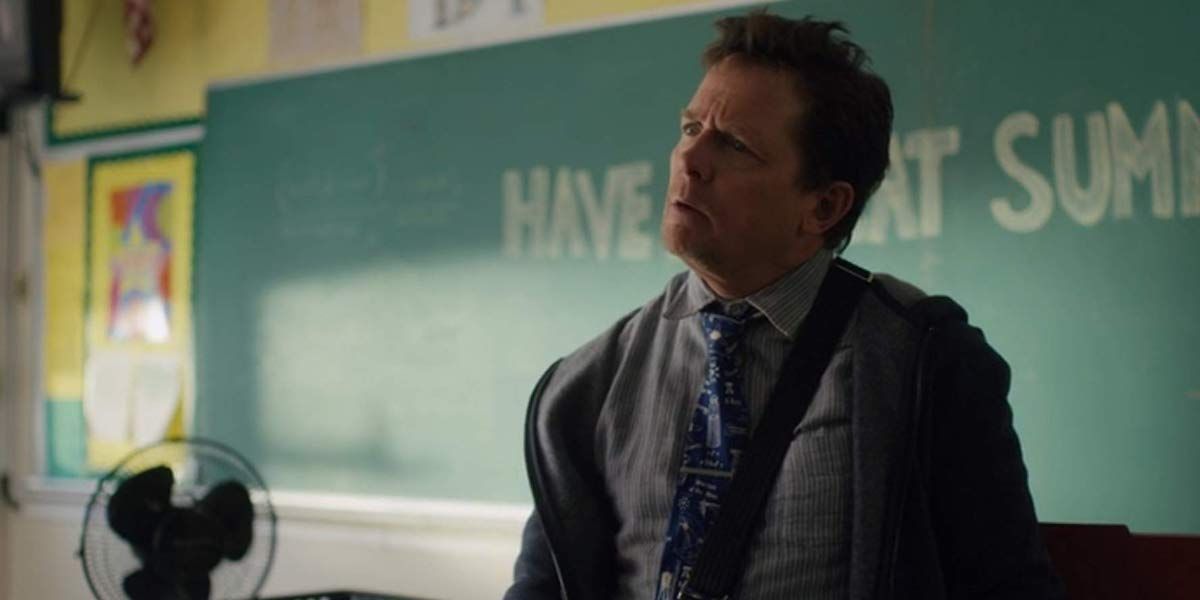When it released over the summer, Netflix's See You Yesterday impressed audiences with its mix of science fiction adventure and hard-edged social commentary. Set against the backdrop of New York City, See You Yesterday follows a pair of science-minded teenagers, C.J. and Sebastian (Eden Duncan-Smith and Danté Crichlow) who successfully invent the world's first time machine. After C.J.'s brother is murdered by a trigger-happy police officer in a case of mistaken identity, C.J. decides to use her new invention in an effort to save him from his tragic fate.
See You Yesterday makes the debut feature by director Stefon Bristol, from a script he co-wrote the script with Fredrica Bailey. The film earned significant acclaim for its deft handling of its heavy subject matter while still remaining light-footed and entertaining with an irrepressible sense of adventure. At this year's Independent Spirit Awards, See You Yesterday is nominated for two prizes: Best First Feature and Best First Screenplay.
In the lead-up to the Independent Spirit Awards, Stefon Bristol and Fredrica Bailey spoke to Screen Rant about their work on the film, and how they managed to co-write a movie while living on opposite ends of the country. They discuss the joy and responsibility that comes with telling a story set in New York City, and how producer Spike Lee helped get the ambitious movie across the finish line. Finally, Bristol also shares an amusing story about Michael J. Fox's meta cameo as a science professor.
The Independent Spirit Awards are set to air live, February 8 on IFC. See You Yesterday is available now on Netflix.
I watched your movie, and it is fantastic. Thanks for shooting in New York City. I live in the city, and it was great to see familiar sights represented on the screen. Places like the Bedford Park subway station in the Bronx, that aren't as "Hollywood iconic" as Grand Central or Times Square, but that New Yorkers recognize.
Stefon Bristol: I wanted to keep the movie New York. That was fun.
Was there ever any pressure to shoot elsewhere? Financial pressure? Or was the city welcoming? NYC is just like nowhere else in the world.
Stefon Bristol: There was no pressure at all. This was my home, my heart, my love, my life, my everything. NYC. There's an idea of exploring, and seeing the inspiration coming from one end of the street in East Flatbush. I'm West Indian, and my parents are from Guyana. I always wanted to shoot in that neighborhood. I grew up going to Flatbush and whatnot. I always wanted for this to be a New York story.
Can you talk about writing together? What's your process like? Do you ever have different ideas and butt heads? How do you work through that conflict? How do you build each other up?
Fredrica Bailey: It was interesting because we were on different coasts. I was here in L.A., and Stefon, of course, is in New York. So we would kinda split up the pages and e-mail back and forth. There were a lot of early morning phone calls on my end. I would be up at 4:00 AM so he could be up at 7:00 and we could talk about changes we made to the pages. And kinda just hash things out! Usually, we had the same sentiments, so we were usually on the same page. It was a very smooth process, I would say!
Stefon Bristol: Fredrica and I, we met at NYU Graduate Film School. Well, I was at Graduate Film School, and Fredrica went to Dramatic Writing department. I needed, for my feature short, I needed a co-writer to help me hone in on the story. I interviewed a lot of people, and Fredrica was the only black woman on the list! And not only was she the only black woman on the list, but she was honestly the best writer.
Fredrica Bailey: Awwwwwww.
Stefon Bristol: She was a triple-A plus. I'm glad I had her, because her way of storytelling and use of the dialogue, and coming from a good place to make sure the story was right, it was extremely needed. So, you know, when I started to do the feature film, she was the only person I trusted and needed to go to. I appreciate her coming in to fix all my mistakes! (Laughs)
Fredrica Bailey: (Laughs) The feeling is very mutual. I appreciate you. When I was in school, when I was a student, I remember thinking, I would love to meet a director who gets me, who gets the genres I like, and who I could feel really comfortable with. I had no idea I would soon be meeting Stefon, and in many ways it was like a prayer being answered, and we ended up making it together. Like I said, we're just so much on the same page with so much stuff, like our favorite movies and all that type of stuff. I feel just as blessed.
It definitely shows. The movie is awesome and you just got nominated for those Independent Spirit Awards! Did you think, when you made the short, that someday you'd get to do a full-length version and get so much acclaim?
Fredrica Bailey: I didn't! I know I was caught off-guard! I was totally shocked. I think, sometimes, when you're in the trenches, you're thinking just, one foot in front of the other. This was a very pleasant surprise. I hadn't even imagined this far down the road. When we were doing the short, and even the feature, I hadn't thought this far ahead. I feel honored, humbled, and blessed that it all worked out this way.
Stefon Bristol: When you're an artist, you're not doing it for the awards. I wanted to break into the industry. I had something to say, and it was something to show what my voice is, and I established my voice early on, and I hope Fredrica feels the same way, that she established her voice early on.
Fredrica Bailey: Yes.
Stefon Bristol: So we felt, when our project came out, everybody might know who we are. Sometimes it doesn't work that way! But hopefully, based on our experience last summer, hopefully some people will understand. With the Spirit Awards, I'm very grateful. It helps with trying to get the next thing made. When I submitted it, it was like, let me do my due diligence in asking Netflix to submit the project to the Spirit Awards. And then I got an e-mail from Tribeca about it. And I was like, oh snap, okay! I'm humbled by it, I'm honored by it, and I was not expecting it. And it only helps to get our message out there more than ever.
I want to talk about the message. In some ways, this movie is a jolly sci-fi adventure, but it's also a really harrowing look at life in the city. Our fear of the police and how the deck always seems to be stacked against women and minorities. The city is a magical place, but there are pillars of oppression that seem insurmountable.
Stefon Bristol: As far as there's one message in the movie, it's not just about police brutality. It's also about showing a different side of young black teenagers that hasn't been shown on screen. You know, I keep hearing from viewers that have a kid who says, I've never seen black nerds on screen like this before, or even seen them at all! Every time there's a black teenager in the city on TV, they're into drugs, or into gangs, or they want to be musicians, dancers, or ball players to get out of the ghetto. That's never my personal story. And I needed to show a different way. The situation of police brutality, you know, it's something that can happen. I'm tired of people being sick and tired, but the only way to press forward is to continue to talk about it. That's my opinion.
I'm sure you've been over this a million times, but can you talk about how Spike got involved? I know you worked on BlacKkKlansman, and he was something of a mentor throughout this project, right?
Stefon Bristol: I knew Spike when I was at the greatest college in the United States of America, Morehouse College in Atlanta, Georgia. I met him there, and I chased after him three times for an internship, over the course of three semesters. I did a short film at Morehouse that he was able to watch, and it was a meeting of trying to get a couple of Morehouse brothers of mine trying to get a film program started, and one of my brothers, Stephen Love, who is a really good producer right now in Hollywood, he was at the meeting, and at the meeting, I said, "Spike, this is my third time asking for an internship, so hook a brother up?" Luckily, I got the internship, and worked my ass off again at NYU, where I asked him to be my mentor. So for six or seven years, I knew Spike. I knew him for a while, and I worked with him, and I was always in his class. I was his office PA. And while I was trying to get See You Yesterday made, I was his assistant for BlacKkKlansman. One of his assistants. The other being Lauren Owen.
Can you think of any examples of how Spike's input directly impacted the production of See You Yesterday?
Stefon Bristol: Spike called me delusional because I was trying to make a feature very quickly, and he knew I wasn't ready. He advised me to do a short first, and then use that short film as a proof of concept for the feature. I'm glad I followed his advice! I applied to his production grant at NYU, and he gave me that. My mother, she refinanced her home so I would be able to make the film and graduate, so I have to give my mom a shout-out! (Laughs) And the short came out, it was on HBO for the American Black Film Festival. And during that time, Spike was reading the script Fredrica and I were writing. And he asked me, "Hey, I'd like to be a producer. I'm not trying to step on any toes, but think about it." And I'm like, what the f*** is there to think about?! Let's do this! This is crazy! That was nuts, when he asked. He's been the best producer any filmmaker can ask for.
That's awesome. I guess he knew what we'd all come to learn: that you two wrote a truly special movie. Okay, last question, I've gotta know: did you have to beg Michael J. Fox to say "Great Scott," or was he cool about it?
Stefon Bristol: (Laughs) I did not direct him to say that!
Oh really? How did it come about?
Stefon Bristol: That day was a reshoot day. We initially wanted him to come during the regular shoot, but he broke his arm that way. He couldn't come in. Yeah, it was bad. But it was a blessing in itself, because Mr. Fox was very apologetic. I was like, there's nothing to apologize for, it was an accident! We're not upset about that! And then, you know, months later, Spike pushed me to ask him again, and I was worried. Like, I don't want to disturb this legend. Regardless of his recovery, I don't want to burden him. But Spike pushed me to do it, and so I asked him again, and he was grateful to come through for us. He came in fully prepared. In the script, it was a completely different line. We wanted to tickle, with a nod. We didn't want to go overboard. So I told him, once we have the take, once we have the scene, you can do whatever you want. As a director, you just let them do whatever they want once you've got the scene. So we do a couple more takes, and once he said "Great Scott," the whole set went bananas! (Laughs) It was nuts. It was absolutely nuts. I'm grateful to him for doing this for a kid from Brooklyn just trying to do a very ambitious film that you have no idea if it's going to be good or not. It was a blessing. I'm grateful for him.
See You Yesterday is available now on Netflix.

